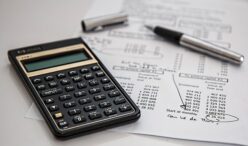As a business, part of your bookkeeping process is to track business expenses properly. Any expenses related to your business is regarded as a business expense.
Whether your business is established or you’re just beginning, tracking your business expense is a necessity. It is a big part of your daily activities if you are in the process of building your business.
In order to meet up compliance requirements, businesses that are liable to corporate tax in Cameroon need to plan and keep their financial health in better shape.
If this article helped you, you can support our work at OpenHub.
Support OpenHub DigitalOne of the first steps when preparing the year-end accounts is to get your business expenses in order. You’re required to accurately track all business expenses that you can. This will help reduce your overall business profit, hence, your business will be paying less Corporate Income Tax.
When tracking your business expenses, make sure you separate business expenses from personal expenses. Small businesses owners usually find it difficult to separate the two. This is because most of them don’t follow accounting principles put in place.
That’s why we ask business owners to focus on their business and leave their accounting for us to manage. We know times are hard and many may not be able to afford a full-time accountant.
 How to organize your business expenses?
How to organize your business expenses?
As a business owner, you require putting in place an expense tracking system that works well for you. There are various methods you can use to track your business expenses to ensure every expense is accurately accounted for.
You can use any of the below to track your business expenses:
- Open a bank account for your business
- Obtain an appropriate accounting system
- Manage your receipts properly
- Ensure all expenses related to your business are recorded promptly
- Consider using an accounting or business expense application
- Choose between cash or accrual accounting
In Cameroon, businesses under the simplified tax system are obliged to use cash accounting, while those under the actual rate tax system are obliged to use accrual accounting.
Simplified Tax System – this is for sole proprietor businesses and corporate bodies with an annual turnover of XAF10 million and below XAF50 million.
Actual Earnings Tax System – for sole proprietor businesses and corporate bodies with an annual turnover of XAF50 million and above.
Many small businesses use a simple list or ledger to track their business expenses. However, this method is a bit cumbersome and may not allow you to get the benefits of putting your expenses in categories. This can be done by organizing your business expenses by function, type or department.
The company accountant can create a spreadsheet where he/she will list, categorize and perform the addition. This can be done easily in Spreadsheet, which allows you to see more information at once.
Each category you define in your Excel Spreadsheet defines a breakdown of the ways your business spends money. Examples of categories could be cost of goods sold, rent, depreciation, utilities, supplies, etc. This will help you to easily transfer the information when preparing your year-end accounts.
Having an experience with Excel Spreadsheet is one of the most important skills an accountant needs. From observation, most job postings for Accountants have Excel as a requirement.
It’s very necessary for every small business owner to track their income and expenses. This is the first step in money management. It will also help you separate business expenses from personal.
Having an experience in Excel is one thing, and knowing how to use it efficiently is what is very significant. Excel is one of the most powerful apps on the market, used by almost every business. You can look for time and learn more to see what it can do for you. You will always find new ways to use Excel to manipulate as well as assess your business data.
Are you looking for a simple way to keep track of your business income? Get in touch with us now a face-to-face and online training.
If this article helped you, you can support our work at OpenHub.
Support OpenHub DigitalPhoto by StellrWeb on Unsplash
From Insight to Implementation
Going through the administrative and legal landscape in Cameroon requires more than just information—it requires a grounded local partner. At OpenHub Consulting, we specialize in helping the diaspora and international investors turn their business visions into compliant, operational realities.
If you are ready to move forward, our team is prepared to manage your registration and compliance from start to finish.
Start Your Company Incorporation →

3 thoughts on “Year-end Accounting – Record All Business Expenses”
Comments are closed.